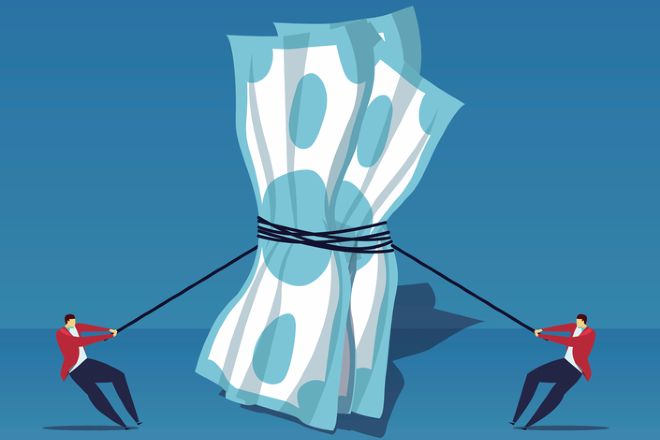"Schools with tax-exempt debt that was purchased by a commercial bank or that is considered a tax-exempt loan from a commercial bank – each is often referred to as a 'direct purchase' – can expect the interest rate on their debt to significantly increase in 2018," said Chuck Procknow, executive vice president at the investment banking firm George K. Baum & Company, in an advisory email last week.
Why the increase? Most schools' direct purchase agreements allow banks to increase interest rates if the corporate tax rate changes, and one element of the tax bill unlikely to change is a drop in the corporate tax rate, from 35 to 20 percent.
Procknow gave an example of how the rate hike would work:
The simple math is as follows: If your school's rate is 3.00 percent, and the bank's tax rate is about 35 percent, this produces a taxable equivalent interest rate of 3.00/(1-0.35) = 4.62 percent. At a new 20 percent corporate tax rate, the bank will likely adjust the effective interest rate to equal the taxable equivalent interest rate multiplied by 1 minus 20 percent. This equates to 3.69 percent. Consequently, if the corporate tax rate is reduced to 20 percent, the bank has the right to increase the school's interest rate from 3.00 to 3.69 percent to maintain the same taxable equivalent yield. For a $10 million issue, annual interest expense for the school is expected to increase from $300,000 to $369,000.
This provision will negatively impact other not-for-profit organizations, such as hospitals and universities. NBOA and NAIS have sent letters to Congress opposing measures that would hurt the financial health of independent schools, and continue to urge schools to contact their senators and representatives to discuss their concerns.
For further questions or comments, NBOA members are encouraged to contact Jennifer Osland Hillen, NBOA's director, accounting and tax programs, and interim director, professional development, at jennifer.hillen@nboa.org.




